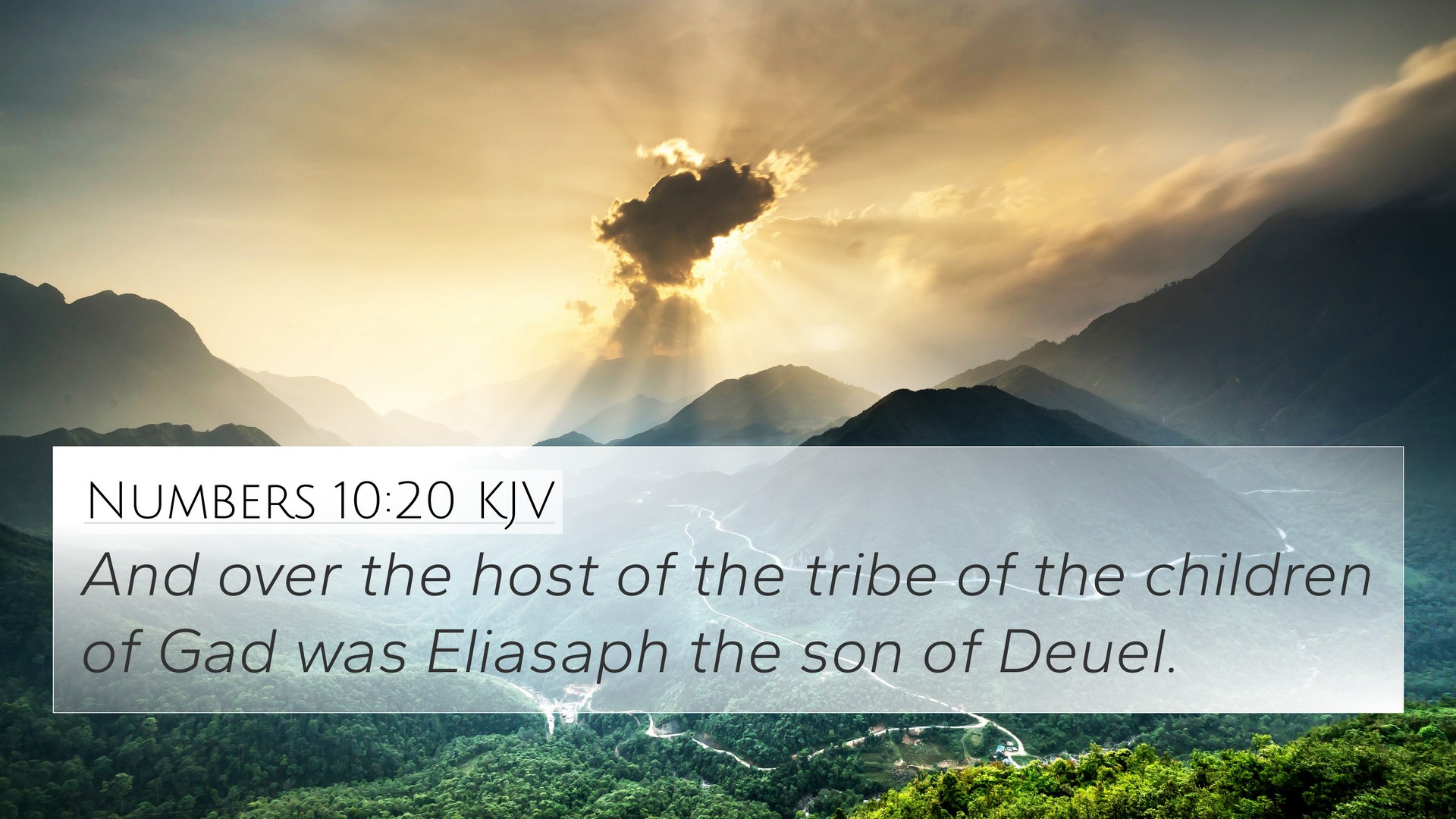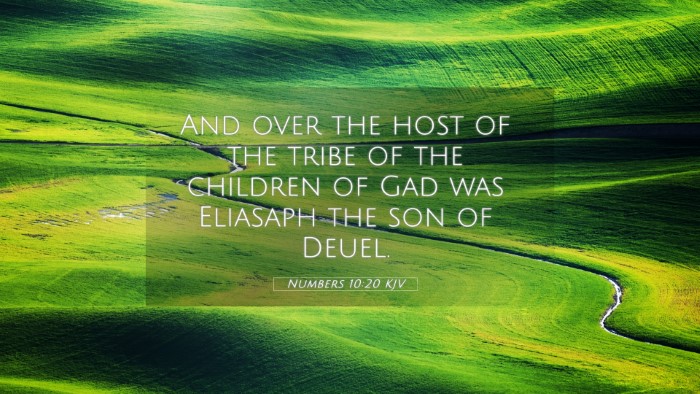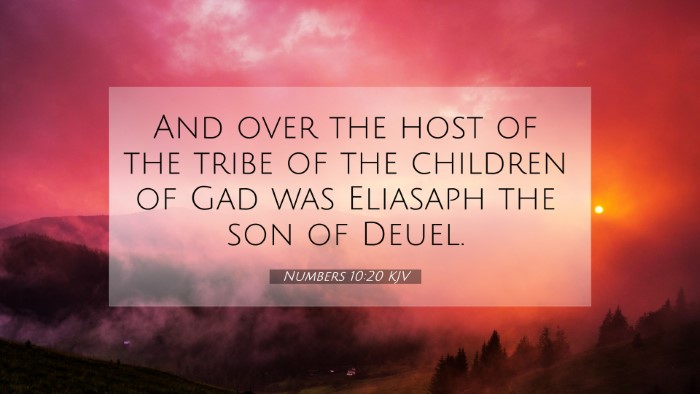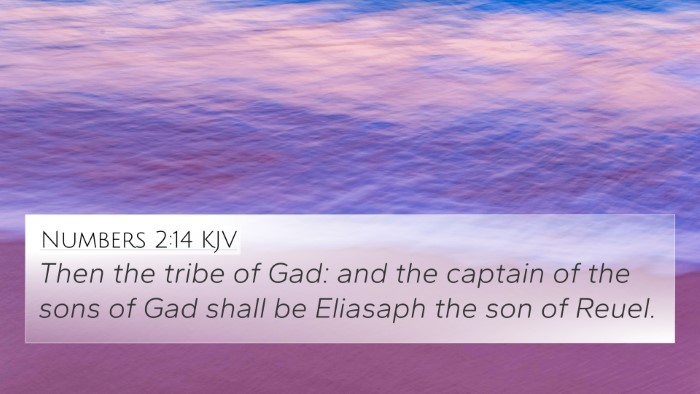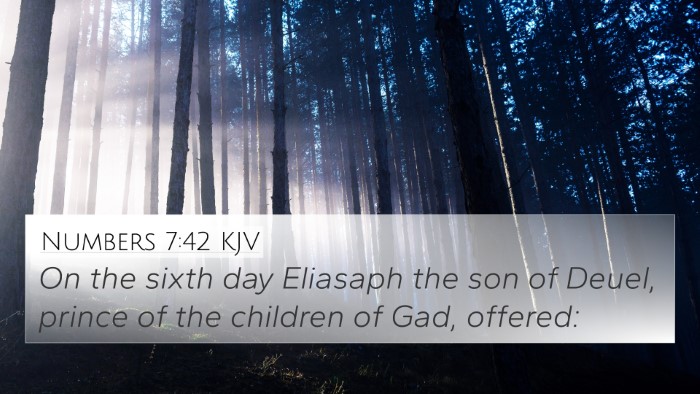Understanding Numbers 10:20
Numbers 10:20 states: "And over the host of the tribe of the children of Ephraim was Elishama the son of Ammihud." This verse provides important context within the structure of the Israelite camp during their journey in the wilderness.
Summary of Content
The verse signifies not only the leadership within the tribe of Ephraim but also reflects the larger organizational framework established by God for the Israelites. Through this leadership structure, God ensures order, coordination, and protection for His people as they journey through the wilderness.
Commentary Insights
Matthew Henry's Commentary
Matthew Henry emphasizes that the appointment of leaders within the tribes was vital for maintaining order among the Israelites. Each tribe, including Ephraim, had its designated leader to guide and protect the people, ensuring they followed God’s directions.
Albert Barnes' Notes
Albert Barnes notes that the leadership of Elishama highlights the importance of the tribal leaders who were responsible for the military and logistical aspects of the journey. He underscores how God’s providence is evident in assigning these leaders, showcasing His sovereignty over the nation of Israel.
Adam Clarke's Commentary
Adam Clarke discusses the significance of Ephraim, who played a crucial role among the tribes. The verse is seen not only as a historical account but as a representation of God’s grace in appointing such leaders, which would ensure the tribe’s security and adherence to God’s commands.
Key Themes and Connections
Numbers 10:20 serves as a link in the broader narrative of the Israelites in their desert wanderings. Here are key themes and connections related to this verse:
- Leadership and Organization: The appointment of leaders like Elishama promotes order in the community.
- Divine Sovereignty: The structure imposed by God illustrates His sovereign will in the journey of His people.
- A Symbol of Hope: Leaders signify hope and direction amidst uncertainty in the desert.
Bible Verse Cross-References
This verse is connected to several other Bible passages that provide a deeper understanding of leadership, organization, and divine purpose. Key cross-references include:
- Exodus 18:21-22: Discusses the appointment of capable leaders over the people.
- Deuteronomy 1:15: Moses appoints leaders from each tribe, illustrating an early model of organizational structure.
- Joshua 14:4: Ephraim's continued significance as a tribe is reinforced in the context of land allocation.
- Numbers 1:10: Specifies the leader of the tribe of Ephraim earlier in the text.
- Numbers 2:18: Assigns Ephraim as a leader among the tribes when camping.
- 1 Chronicles 12:30: Highlights the strength and importance of Ephraim in a later context.
- Hebrews 7:14: Connects the lineage of Jesus through the tribe of Judah, showing the significance of tribal lineage.
Applying the Insights
This analysis can serve as a valuable resource for anyone looking to deepen their understanding of the complexities present in biblical texts.
By incorporating themes of leadership, divine organization, and scriptural connections, we can better appreciate how individual verses like Numbers 10:20 fit into the grand narrative of the Bible.
Tools for Bible Cross-Referencing
For those interested in exploring cross-references further, consider utilizing the following tools:
- Bible Concordance
- Bible Cross-Reference Guide
- Cross-Reference Bible Study
- Bible reference resources
Conclusion
The verse Numbers 10:20 encapsulates not only a historical moment but also offers deeper theological insights through its connections to other scriptures. Understanding these relationships enriches our study and emphasizes God’s intention and purpose for His people.
